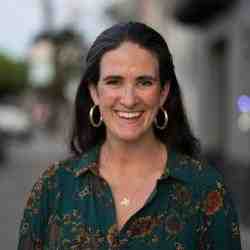Introduction
Pralhad is helping India's industrial workers attain the health care services guaranteed to them by law. By teaching workers about their rights, organizing them into watchdog committees, uniting them with related organizations, and lobbying for reform, Pralhad is fixing a corrupt and ineffective public health insurance system.
The New Idea
Enacted in 1948, the Employee's State Insurance Scheme (ESIS) is a form of contributory health and accident insurance. Pralhad is revamping the ESIS health care system to make it more regulated, effective, and quality-driven. Through a national campaign, Pralhad is drawing together the two groups with the greatest potential to bring about reform: industrial workers who are the beneficiaries of this scheme and citizen sector organizations. He is also linking a wide range of citizen organizations to lobby for reform and to develop effective means of collaborating despite the lack of government support. One of the most radical aspects of Pralhad's work is his plan to directly involve ESIS-insured workers by organizing them into watchdog committees that monitor implementation and follow-up of specific health care services. Other measures for improving the system include creating groups of doctors who are committed to providing quality care and lobbying for legal reforms that will enable workers to demand adequate treatment. Pralhad's idea has immense potential since the scheme can be expanded to cover workers in India's large and growing informal sector as well.
The Problem
Ten million industrial workers participate in ESIS, a health and accident insurance plan that covers employees earning up to $139 per month. This scheme promises to cover most illnesses, rehabilitation, and disability benefits for occupational diseases and injuries sustained while working. Employees, employers, and state governments contribute to ESIS.This system is rife with problems, however. While workers pay monthly premiums, state governments cover only one-eighth of medical treatment costs. ESIS patients rarely receive adequate care or access to necessary hospital equipment. Absentee doctors and inadequately stocked pharmacies are frequent problems. In addition, ESIS caretakers often ignore patients suffering from occupational diseases. As a result, poor patients must pay unaffordable rates for private treatment or receive no treatment at all. ESIS staff often humiliate patients by treating them as freeloaders or beggars asking for alms. A worker suffering from a lung disease was shuffled from one hospital department to another for two years before Pralhad's organization came to his aid. Despite complaints, this situation is difficult to remedy because the laws governing the ESIS plan allow very little participation by contributors and beneficiaries. Even though the ESI Act provided for representation of the employees on national and local hospital committees, the policy is often not implemented.
The Strategy
Pralhad's main strategy is to inspire grassroots efforts because he believes that using workers as watchdogs will pressure ESIS authorities to be more responsible and attentive. He is helping workers to create their own strategies and take action collectively by linking groups across states.By extending the services offered by Mumbai's Occupational Health Service Center to similar centers in Aurangabad and Pune, he plans to train workers to stand up for their rights and demand benefits. In the next year, he hopes to set up ESIS centers in these cities and to connect with other centers around the country. Pralhad also coordinates a network of citizens' groups and other nonprofits that advocate for workers' rights and health care. He works with these groups to pressure care providers to improve medical services, availability of medicines, and benefits available to victims of accidents and occupational diseases. While each group addresses a specific aspect of the scheme, their efforts have thus far lacked coordination. He intends for these lobbying groups to join forces with the workers' watchdog committees. By linking their efforts, Pralhad envisions building a movement that can effectively advocate for the legal rights of workers to help formulate provisions and monitor ESIS.These efforts are especially important as the government considers expanding ESIS to cover workers in the informal sector–domestic laborers, construction workers, rag pickers, and other independent laborers who are not formally employed and are often exploited. To lobby to include these informal workers, Pralhad collaborates with national federations of employees already fighting for the proper use of ESIS funds. Together, they are advocating for the Employee's State Insurance Corporation, the group that implements ESIS, to replace state governments as managers of ESIS medical facilities. Pralhad believes that building up grassroots pressure groups is the most effective strategy to bring about reform nationally. Differing from other advocacy groups in its collaborative structure and broad scope, Pralhad's work goes beyond the usual confrontational tactics often employed. His network is also part of the ongoing national discussion about "grassroots democracy" in local governance.
The Person
The son of a poor farmer, Pralhad has never had health insurance. Even so, he has long focused on winning quality health care services for the working class. He spent many years organizing workers at textile mills and power looms. He helped these mainly migrant workers register as a group to gain credibility. Slow progress and internal politics, however, led Pralhad to stop organizing in 1990. He spent a few years as an auto-rickshaw driver though determined to return to his previous work with a new strategy that would overcome the challenges he had faced early on. In 1998, Pralhad joined the Occupational Health and Safety Center in Mumbai and an organization called Participatory Research in Asia in New Delhi as a senior trainer on ESIS. His conversations with patients visiting the center revealed that while workers were contributing to ESIS monthly, they were hardly benefiting from the scheme. With Pralhad's intensive training, workers from eighteen textile mills were examined for occupational diseases and taught how to access information about their rights under ESIS. As a result, two hundred and fifty workers received benefits for their occupational ailments. Fueled by this success, Prahalad decided to spread his approach to helping workers take action by training and providing medical assistance to many more workers, reforming the entire ESIS system, and continuing to directly involve workers in this effort.



